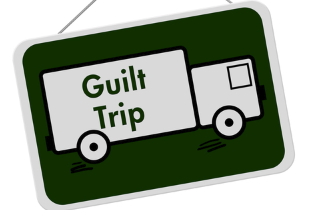It was St Patrick’s’ Day and what we thought would be just another day turned out to be a day we would celebrate in our family’s history for generations to come.
My family’s heritage stems from the Irish and Scottish coasts. The Scotch-Irish culture was home to my family until they migrated to Boston, Massachusetts, and Maine during the Great Potato Famine. Our family has always been built with a strong desire to commune with each other, protect each other and serve our country. But for over 400 years, the center of the Irish drinking culture has been to commune over a pint of beer. It’s no wonder our family struggled with alcohol for generations.
So, why was St. Patrick’s Day so special to me?
It was the day my father said he was ready to retire from alcohol. He decided that day would be the day nine generations of alcoholism would end. On March 17, my father stopped drinking alcohol for good after over 30 years of abuse.
I am incredibly proud of my father for being so brave. I watched my father struggle with the disease, and he tells his story in the epilogue of my book The Journey Principles. He took a stand and said enough is enough; shortly after that his brother followed his influence and also stopped.
He lived its nightmare and pain, but so did we. As is often the case, his personal struggle flowed into our family’s struggle. The real work had yet to begin.
The real work of recovery from alcoholism
What is the real work? It comes from one word: guilt.
For example, daily my father had to relive the mistakes he made during the years he spent drinking. Once he identified an alcohol problem and committed to getting sober, he realized that he missed years of my life and that of my brother. He had a hard time holding down long-term jobs for extended periods of time.
When his heart broke over those mistakes, my teenage heart broke too. I had never seen such a broken man. My father had tears in his eyes almost daily as he looked back at all the years he felt were wasted. He repeatedly asks for forgiveness from all hurt he caused, both intentional and unintentional.
Forgiveness from the inside-out
It took some time for him to understand that he had been forgiven a long time ago, but the guilt he carried made each day tough. It was not the fact the he had not been forgiven but rather the fact he had not forgiven himself. Eventually, my father had to learn how to break away from guilt, continue toward change, and accept that he would become better than he had been before.
Four (4) steps to letting go of guilt
So, what can you do to move towards a “clean side of the street”? You can break from the past and let go of guilt. Like my father, you can follow these four steps to move away from the past:
1. First, own your guilt.
Don’t be scared to acknowledge that you feel guilty. “Dave Grohl says, “Guilt is cancer. Guilt will confine you, torture you, destroy you-It’s a black wall. It’s an [expletive] thief.” Ignoring guilt is toxic. If you don’t approach it head-on, guilt will eat away at you and, as Dave said, it can steal from you, eating away at your integrity, peace, and joy.
2. Grieve in a healthy manner and in a healthy environment.
It’s okay to feel the loss of our past as long as we focus the future change. We need to remember that the things in our lives we consider useless garbage can fertilize our future harvest; the worst parts of your life can help produce the best parts of your life.
3. Be vigilant and apply changes.
Watch your influences and pay attention to what you expose yourself to. We have to say to ourselves, “I made the mistake, and I will learn from it and grow from it.” However, make sure that you make systematic changes in your life to keep from relapsing.
4. Operate in grace.
It has nothing to do whether or not we deserve it and everything to do with the fact that we need it. Grace is the covering over hurt, pain and loss. Grace is defined in Webster’s Dictionary as an act of kindness, courtesy, or clemency. Find a way to kind to yourself, but be ready to work!
Dealing with guilt helps you move beyond it
Just like my father, I had trouble with letting go of the past and embracing what was ahead. We both have had to deal with the guilt of our past mistakes before we could fully understand that we had everything we could still live our best lives now.
Luckily, my father has now been able to use his story of redemption through grace. He is creating a legacy of healing from what he thought would only be a legacy of pain. We all have the keys to a new life of legacy. A new life awaits each of us through tomorrow’s choices!









Related Posts